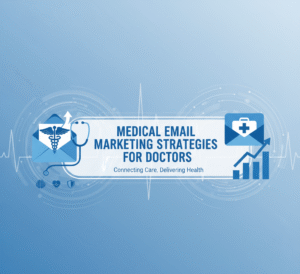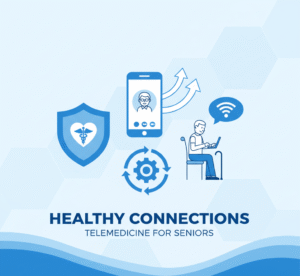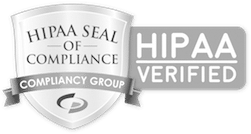“Boost your healthcare e-commerce site’s visibility and conversions with essential SEO for healthcare e-commerce sites strategies, covering keywords, site speed, mobile responsiveness, and trust-building content.”
In today’s digital landscape, a strong online presence is non-negotiable for healthcare e-commerce businesses. You’re not just selling products; you’re offering solutions directly impacting people’s well-being. This requires a unique approach to search engine optimization (SEO). Your goal isn’t just to rank high; it’s to build trust, provide clear information, and guide customers to the products they need easily and confidently.
This comprehensive guide will walk you through the essential SEO best practices specifically designed for healthcare e-commerce websites. We’ll cover everything from finding the right words your customers use to ensuring your site loads in a flash and is easy to navigate on any device. We’ll also discuss how to structure your content so search engines understand it perfectly and how to build the credibility vital for a medical-related business. By the end, you’ll have clear, actionable insights to boost your visibility, attract more qualified traffic, and drive conversions.
Understanding the Healthcare E-Commerce Landscape
Before diving into SEO tactics, it’s crucial to grasp the unique characteristics of the healthcare e-commerce sector. This isn’t like selling clothes or electronics. Consumers in this space often have specific needs, are highly research-oriented, and prioritize accuracy, safety, and reliability. They are searching for solutions to health concerns, preventative measures, or ways to manage existing conditions. Their purchasing decisions are often deeply personal and driven by a need for assurance.
Furthermore, the regulatory environment surrounding healthcare products and information is stringent. This impacts how you can market your products, what claims you can make, and the level of transparency required. Your SEO strategy must account for these factors, ensuring compliance while effectively reaching your target audience.
The competition is also fierce. You’re against established pharmacies, large medical supply companies, and specialized niche retailers. Your SEO efforts must be precise, strategic, and consistently applied to stand out.
The Foundation: Keyword Optimization for Healthcare E-Commerce
Keywords are the backbone of any successful SEO strategy. They are the terms and phrases people type into search engines when looking for information or products. For healthcare e-commerce, identifying the right keywords is paramount. It’s about understanding your customers’ language, pain points, and specific needs.
How to Find Your Keywords
Start by brainstorming. Think about all the products you sell. Consider the conditions they address, the benefits they offer, and the problems they solve.
- Product-Specific Keywords: These are straightforward. If you sell “blood pressure monitors,” that’s a key term. But go deeper. Think about “automatic blood pressure monitor,” “wrist blood pressure cuff,” or “Omron blood pressure monitor.”
- Problem-Solution Keywords: People often search for solutions to their problems. “How to manage diabetes at home” might lead them to glucose meters and diabetic supplies. “Best vitamins for immunity” could guide them to your supplement section.
- Symptom-Based Keywords: While you can’t offer medical advice, you can provide products that alleviate symptoms. For example, someone searching for “dry skin remedies” might look for medicated lotions.
- Long-Tail Keywords: These are longer, more specific phrases, often questions. Examples include “where to buy sterile bandages online” or “reviews for at-home allergy test kits.” Long-tail keywords have lower search volume but higher conversion rates because the user’s intent is clear.
Keyword Research Tools
Several tools can help you in this process:
- Google Keyword Planner: Free and integrated with Google Ads, it provides search volume data and related keyword ideas.
- SEMrush: Offers comprehensive keyword research, competitor analysis, and site auditing.
- Ahrefs: Similar to SEMrush, providing extensive keyword data, backlink analysis, and content gap analysis.
- Ubersuggest: A user-friendly tool for keyword ideas, content suggestions, and competitive insights.
When using these tools, look for keywords with a good balance of search volume and manageable competition. Don’t chase keywords too broad or dominated by massive corporations unless you have a highly specialized angle.
Implementing Keywords Effectively
Once you have your target keywords, strategically integrate them into your website content.
- Page Titles: Your page title is one of the most essential SEO elements. It should be concise, compelling, and include your primary keyword for that page. For example, “Diabetic Test Strips – Buy Online | [Your Store Name].”
- Meta Descriptions: While not a direct ranking factor, a well-crafted meta description encourages clicks. Include your keyword and a compelling call to action that accurately describes the page’s content.
- Product Descriptions: Write detailed, informative, and unique product descriptions. Naturally weave in relevant keywords, but prioritize clarity and value for the customer. Avoid keyword stuffing.
- Category Pages: These are crucial. Optimize your category page titles, descriptions, and introductory text with relevant keywords (e.g., “Orthopedic Braces & Supports | Shop Back, Knee & Ankle Braces”).
- Blog Posts and Articles: Create valuable content around your keywords. If you sell nebulizers, write an article like “Understanding Nebulizer Types and Their Benefits.” This attracts users who are searching for information, not just products.
- Image Alt Text: Describe your images using relevant keywords. This helps search engines understand your images and improves accessibility.
Remember, keyword optimization is an ongoing process. Review your keyword performance regularly and adapt your strategy based on new trends and search patterns.
Technical SEO: Building a Robust Foundation
Technical SEO ensures your website is easily crawled and indexed by search engines. For healthcare e-commerce, a strong technical foundation builds trust and provides a seamless user experience, both vital for conversion.
Site Speed: Every Second Counts
In the healthcare sector, users often seek information quickly, especially regarding an urgent need. A slow-loading website can be incredibly frustrating and lead to high bounce rates. Google also considers site speed a critical ranking factor.
- Optimize Images: Use appropriate formats (JPEG for photos, PNG for transparent graphics). Compress images without sacrificing quality. Tools like TinyPNG or Smush can help.
- Leverage Browser Caching: Caching stores parts of your website on a user’s browser, so subsequent visits load faster.
- Minimize CSS and JavaScript: Reduce the size of these files by removing unnecessary characters and spaces.
- Choose a Fast Host: A reliable and fast hosting provider is fundamental.
- Use a Content Delivery Network (CDN): A CDN distributes your website’s content across multiple servers worldwide, delivering it from the server closest to the user, significantly speeding up load times.
Test your site speed regularly using tools like Google PageSpeed Insights and GTmetrix. They provide actionable recommendations for improvement.
Mobile Responsiveness: A Must-Have, Not a Nice-to-Have
A significant portion of online searches and purchases now occur on mobile devices. This is particularly true for healthcare, as people often look up information on the go or while managing health conditions. Your website must be fully responsive, adapting seamlessly to various screen sizes. Google uses mobile-first indexing, meaning it primarily uses the mobile version of your content for indexing and ranking.
- Responsive Design: Implement a design that automatically adjusts layout, images, and text based on the user’s device.
- Easy Navigation: Ensure menus are intuitive and clickable on small screens.
- Legible Text: Use font sizes and line spacing that are easily read on mobile.
- Accessible Forms: Make sure forms are easy to fill out on mobile, with large input fields and clear labels.
Test your site’s mobile-friendliness using Google’s Mobile-Friendly Test.
Schema Markup: Speaking Google’s Language
Schema markup (or structured data) is a vocabulary of tags you can add to your HTML to help search engines better understand your content. For healthcare e-commerce, this is incredibly powerful. It lets you tell Google directly what your products are, their prices, availability, reviews, and even medical-specific information.
- Product Schema is essential for e-commerce. It helps Google display rich snippets in search results, directly showing product price, availability, and star ratings. This significantly improves click-through rates.
- Review Schema: Mark up customer reviews. This can lead to star ratings appearing next to your search listing, building immediate trust.
- Organization Schema: Provides information about your business (name, address, contact details).
- Local Business Schema: Crucial if you have physical locations or serve specific geographic areas.
- Medical Specialty Schema: While less common for direct product pages, medical specialty schema can be valuable if you have content discussing specific medical conditions or treatments.
Implement schema markup using tools like Google’s Structured Data Markup Helper or plugins for your e-commerce platform. Then, validate your schema with Google’s Rich Results Test.
Site Architecture and Navigation: Clarity is King
A well-structured website guides both users and search engine crawlers. For healthcare e-commerce, logical product categorization is essential for users seeking specific items.
- Logical Hierarchy: Organize your products into clear, intuitive categories and subcategories. For example: Home > Medical Supplies > Wound Care > Bandages.
- Breadcrumbs: Implement breadcrumb navigation on every page. This helps users understand their location on your site and provides internal linking opportunities for SEO.
- Internal Linking: Link relevant pages within your site. For instance, from a product page for a specific wound dressing, link to related products like antiseptic wipes or medical tape. From a blog post about diabetes management, link to relevant diabetic supplies. This distributes “link juice” and helps search engines discover new content.
- XML Sitemaps: Submit an XML sitemap to Google Search Console. This tells Google about all the essential pages on your site, helping it crawl them efficiently.
- URL Structure: Use clean, descriptive, and keyword-rich URLs. Avoid long, complex URLs with random characters. For example, yourstore.com/medical-supplies/diabetes-testing-strips is better than yourstore.com/productid=12345&cat=5.
Content Marketing for Healthcare E-Commerce: Building Trust and Authority
In healthcare, trust is paramount. You’re not just selling products; you often guide people through sensitive health decisions. Content marketing is your opportunity to establish your brand as a reliable, authoritative source of information. This isn’t just about selling; it’s about educating and empowering your customers.
Informative Blog Posts and Articles
Create content that addresses common health concerns, explains product usage, or offers tips for managing specific conditions.
- Product Usage Guides: How to properly use a nebulizer, apply a specific type of bandage, or read a blood pressure monitor.
- Condition-Specific Information (Non-Diagnostic): Articles like “Managing Blood Sugar Levels at Home” or “Tips for Living with Chronic Pain.” Emphasize that this is informational, not medical advice.
- Buyer’s Guides: “Choosing the Right Glucose Meter” or “A Guide to Mobility Aids.”
- Prevention and Wellness Tips: “Boost Your Immune System Naturally” or “Ergonomic Solutions for Your Home Office.”
- FAQ-Style Content: Address common questions related to your products or the conditions they serve.
Always cite reputable sources (e.g., CDC, WHO, NIH) for any health information you provide. This significantly boosts your credibility.
Video Content
The video is engaging and excellent for demonstrating product usage or explaining complex medical devices.
- Product Demonstrations: Show how a specific medical device works.
- “How-To” Guides: Step-by-step video instructions for everyday tasks.
- Customer Testimonials: Authentic reviews from satisfied customers can build immense trust.
Optimize your videos for SEO using relevant keywords in titles, descriptions, and tags. Host them on platforms like YouTube and embed them on your product pages or blog.
Customer Reviews and Testimonials
User-generated content is compelling, especially in healthcare. Real experiences from other customers serve as social proof and build trust.
- Encourage Reviews: Actively ask customers to leave reviews after purchase. Follow up with emails.
- Display Reviews Prominently: Show star ratings and written reviews on product pages.
- Respond to Reviews: Address both positive and negative feedback professionally. This shows you value customer input.
Local SEO for Healthcare Retailers: Connecting with Your Community
Local SEO is critical if your healthcare e-commerce business also has physical locations (pharmacies, medical supply stores, etc.). It helps local customers find your store when they search for “medical supplies near me” or “pharmacy [your city].”
- Google My Business (GMB): This is the cornerstone of local SEO.
- Claim and Optimize Your Listing: Complete and accurately complete every section, including the business name, address, phone number, website, hours of operation, and categories.
- Add Photos: High-quality photos of your storefront, interior, and products.
- Post Updates: Share news, promotions, or new product arrivals.
- Manage Reviews: Respond to all reviews, both positive and negative.
- Local Citations: Ensure your business name, address, and phone number (NAP) are consistent across all online directories (Yelp, Yellow Pages, industry-specific directories). Inconsistent NAP data can confuse search engines.
- Local Keywords: Incorporate location-specific keywords into your website content, especially on your “Contact Us” or “Locations” pages.
- Local Backlinks: Try to get links from other local businesses or community organizations.
Mobile SEO for Healthcare E-commerce: Beyond Responsiveness
While mobile responsiveness is a technical necessity, mobile SEO goes further, ensuring the mobile experience is optimized for conversion.
- Fast Loading Times: This point is reiterated because it’s even more critical on mobile, where connectivity can be variable.
- Intuitive Navigation: Ensure menus are easy to tap, and crucial information is readily accessible without excessive scrolling.
- Large, Tap-Friendly Buttons: Avoid small links or buttons that are difficult to tap on a touchscreen accurately.
- Optimized Forms: Simplify checkout processes and forms for mobile users. Consider autofill options and guest checkout.
- Click-to-Call Buttons: Make it easy for customers to contact you directly from their mobile devices.
- Clear Calls to Action (CTAs): Ensure your CTAs are prominent and easy to understand on smaller screens.
Technical Details and Ongoing Maintenance
SEO is not a one-time task. It requires continuous monitoring, adjustment, and improvement.
Secure Your Site with HTTPS
This is non-negotiable for any website, primarily e-commerce, and critical for healthcare. HTTPS encrypts data transmitted between the user’s browser and your server, protecting sensitive information like payment details. Google also favors HTTPS sites in search rankings. If your site isn’t HTTPS, switch immediately.
Implement an SSL Certificate
An SSL (Secure Sockets Layer) certificate enables HTTPS. Ensure your certificate is valid and properly installed.
Monitor Core Web Vitals
Core Web Vitals are a set of metrics Google uses to evaluate user experience. They measure loading performance (Largest Contentful Paint – LCP), interactivity (First Input Delay – FID), and visual stability (Cumulative Layout Shift – CLS). Regularly monitor these metrics in Google Search Console and strive for “Good” scores.
Fix Broken Links (404 Errors)
Broken links create a poor user experience and waste search engines’ “crawl budget.” Use tools like Google Search Console or Screaming Frog to identify and fix 404 errors. Implement 301 redirects for pages that have moved permanently.
Regularly Audit Your Site
Conduct regular SEO audits (at least quarterly). This helps you identify technical issues, content gaps, and new optimization opportunities. Tools like SEMrush, Ahrefs, and Screaming Frog can assist with this.
Stay Updated with Algorithm Changes
Google’s algorithms are constantly evolving. Stay informed about major updates and adjust your strategy accordingly. Follow reputable SEO news sources and blogs.
Building Trust and Authority: The Healthcare E-Commerce Imperative
Beyond technical SEO and keyword optimization, building trust and authority is paramount for healthcare e-commerce sites. Consumers are entrusting you with health-related purchases; they need to feel confident in your products and business.
Transparency and Accuracy
- Clear Product Information: Provide detailed, accurate product descriptions, specifications, and usage instructions. Avoid hyperbole or misleading claims.
- Ingredient Lists and Certifications: For supplements, medical devices, or personal care items, clearly list ingredients, certifications (e.g., FDA approval where applicable), and any relevant safety information.
- Disclaimers: Include appropriate disclaimers, making it clear that the information on your site is for educational purposes and not a substitute for professional medical advice.
- About Us Page: Tell your story. Who are you? What is your mission? Highlight any medical professionals or advisors on your team.
- Contact Information: Make it easy for customers to reach you by phone, email, or live chat.
Security and Privacy
- Privacy Policy: A clear, easy-to-understand privacy policy is essential, especially given the sensitive nature of health data. Explain how you collect, use, and protect user information.
- Secure Checkout: Reiterate the security of your checkout process (e.g., “SSL Encrypted Checkout”).
- HIPAA Compliance (if applicable): While e-commerce platforms typically handle payment data securely, if you collect or process protected health information (PHI), ensure you are HIPAA compliant.
Expert Endorsements and Affiliations
If you have affiliations with medical organizations or professionals or have received relevant industry recognition, showcase these on your site. This can significantly boost your perceived authority.
Beyond the Basics: Advanced Strategies
Voice Search Optimization
As voice assistants become more prevalent, optimizing for voice search is increasingly important. People use voice search differently, often asking full questions.
- Focus on Conversational Keywords: Consider how someone would verbally ask for a product or information, such as, “What is the best blood glucose monitor for beginners?”
- Answer User Questions Directly: Structure your content to answer common questions directly. This aligns with Google’s “People Also Ask” snippets.
- Optimize for Local Intent: Many voice searches have local intent (e.g., “pharmacy open now”).
E-A-T (Expertise, Authoritativeness, Trustworthiness)
For Your Money Your Life (YMYL) topics, which include health and medical information, Google places significant emphasis on E-A-T.
- Expertise: Demonstrate your knowledge. This comes through well-researched, accurate content written by or reviewed by experts.
- Authoritativeness: Build your reputation as a go-to source. This involves strong backlinks from reputable sites, mentions in industry publications, and a strong online presence.
- Trustworthiness: Ensure your site is secure and transparent and that your information is accurate and unbiased. Customer reviews and a clear privacy policy contribute to this.
To boost E-A-T:
- Author Bios: If you have medical professionals writing or reviewing content, feature their credentials prominently.
- Backlinks from Authoritative Sources: Seek opportunities to earn links from respected medical journals, health organizations, or news sites.
- Showcase Awards or Certifications: Display any relevant industry awards or certifications.
Putting It All Together: A Unified Approach
Successfully implementing SEO for your healthcare e-commerce site requires a unified approach. Each element discussed – keyword optimization, technical SEO, content marketing, local SEO, mobile optimization, and trust-building – works synergistically.
Start by thoroughly auditing your current site. Identify your strengths and weaknesses. Then, prioritize your efforts. If your site speed lags or your product descriptions are thin, address these foundational issues first.
Next, develop a comprehensive content strategy. What questions are your customers asking? How can you provide value beyond just selling products? Consistency is key here. Regularly publish fresh, high-quality content.
Finally, continuously monitor your performance. Use Google Analytics and Google Search Console to track traffic, conversions, keyword rankings, and technical issues. Be prepared to adapt and refine your strategies based on data. The digital landscape is constantly changing, and your SEO strategy must evolve.
Partnering for Success: InvigoMedia’s Expertise
Navigating the complexities of SEO for healthcare e-commerce can be challenging. It requires a deep understanding of search engine algorithms and the specific nuances of the medical industry, which is where specialized expertise becomes invaluable.
InvigoMedia is a leading medical digital marketing service provider, uniquely positioned to help healthcare e-commerce brands achieve their online goals. Their proven expertise goes beyond generic SEO tactics, focusing specifically on the needs of healthcare businesses. They understand the regulatory landscape, the importance of trust, and the unique purchasing journey of healthcare consumers.
InvigoMedia’s strategic capabilities encompass comprehensive keyword research tailored to medical terminology, advanced technical SEO implementation for optimal site performance, and compelling content marketing strategies that build authority and drive conversions. They excel at optimizing product pages, building robust internal linking structures, and implementing schema markup that makes a difference. Their specialized service offerings include comprehensive SEO audits, ongoing management, and performance tracking, designed to deliver real-world value and measurable results. By partnering with InvigoMedia, you gain access to a team that understands the intricacies of SEO and the vital importance of accuracy, credibility, and patient well-being in the healthcare sector. They help you connect with your audience, build lasting trust, and grow your healthcare e-commerce business.
FAQs About SEO for Healthcare E-commerce Sites
Q1: How long does it take to see results from SEO efforts on a healthcare e-commerce site?
A1: SEO is a long-term strategy, not a quick fix. You might start seeing initial improvements in rankings and traffic within 3-6 months, but significant, sustained results typically take 6-12 months or even longer, especially in competitive healthcare niches. Factors like the competitiveness of your keywords, your starting point, and the consistency of your efforts all play a role.
Q2: Is content marketing essential for an e-commerce site selling products?
A2: Absolutely. For healthcare e-commerce, content marketing is vital for building trust, authority, and educating your audience. People searching for healthcare products often have questions or are researching solutions to specific conditions. Informative blog posts, guides, and videos position your brand as a helpful resource, not just a seller. This builds customer loyalty and can indirectly lead to sales by attracting users earlier in their buying journey.
Q3: How critical are customer reviews for healthcare e-commerce SEO?
A3: Customer reviews are critical. They build trust and provide social proof, which is crucial in healthcare. Positive reviews can significantly influence purchasing decisions. From an SEO perspective, reviews add fresh, unique content to your product pages. With proper schema markup, they can lead to star ratings appearing in search results, boosting your click-through rates. Google also considers user-generated content a signal of credibility.
Q4: What are the most significant technical SEO challenges for healthcare e-commerce sites?
A4: Common technical challenges include slow site speed due to unoptimized images or heavy scripts, poor mobile responsiveness, broken links, duplicate content issues (prevalent with many product variations), and incorrect or missing schema markup. Ensuring your site is fully secure with HTTPS and has a clear, logical architecture is also paramount.
Q5: Should I focus on generic or specific, long-tail keywords for healthcare products?
A5: You should focus on a mix of both. Generic keywords (e.g., “blood pressure monitor”) have high search volume but are very competitive. Long-tail keywords (e.g., “automatic wrist blood pressure monitor for seniors”) have lower volume but indicate higher purchase intent and are less competitive. A balanced strategy involves targeting broader terms for general visibility while heavily optimizing for specific long-tail keywords to capture highly qualified traffic.
Q6: How does HIPAA compliance relate to SEO for healthcare e-commerce?
A6: While direct SEO strategies don’t typically involve handling Protected Health Information (PHI), any healthcare e-commerce site that collects or processes sensitive patient data (beyond basic order information) must be HIPAA compliant. This affects your data security, privacy policies, and managing user accounts. Even if you don’t directly handle PHI, demonstrating a strong commitment to user privacy and data security through clear policies and secure website infrastructure (HTTPS, robust payment gateways) indirectly builds trust, which is a core component of E-A-T and crucial for overall SEO success in the healthcare space.
Q7: What is E-A-T, and why is it crucial for healthcare e-commerce?
A7: E-A-T stands for Expertise, Authoritativeness, and Trustworthiness. Google places a very high emphasis on E-A-T for “Your Money Your Life” (YMYL) topics, which directly impact a person’s health, safety, or financial well-being. Healthcare information and products fall squarely into this category. For your healthcare e-commerce site, demonstrating E-A-T means providing accurate, well-sourced information, having credible authors or reviewers for your content, securing your site, and maintaining transparent business practices. Without strong E-A-T, ranking well for health-related queries is very difficult.













